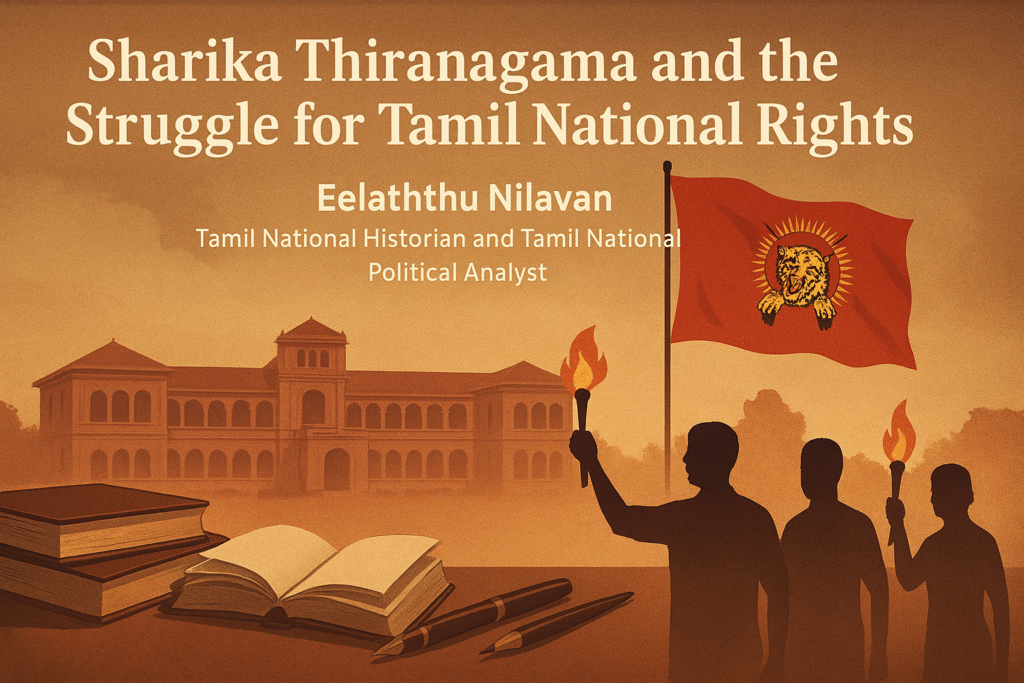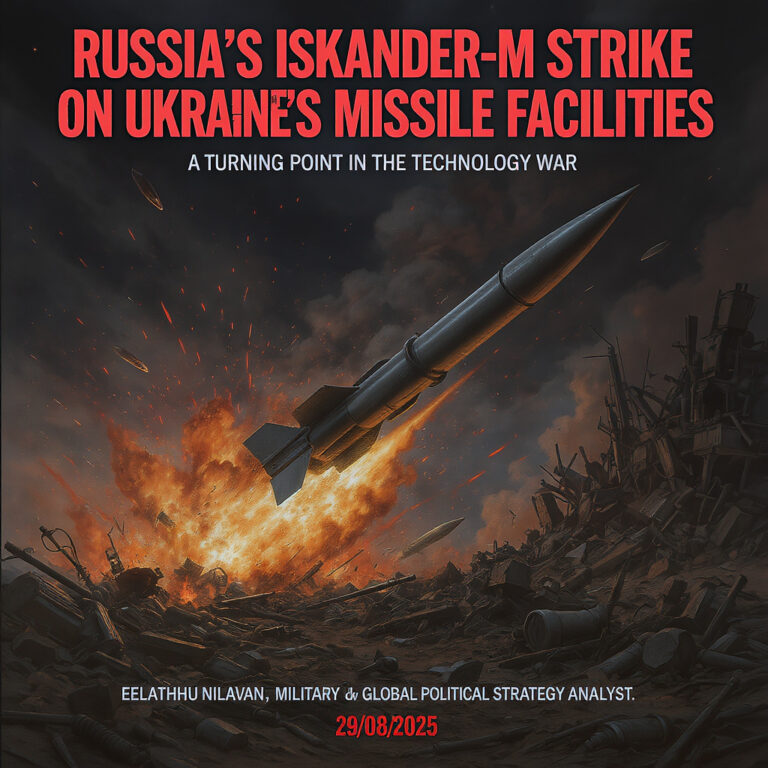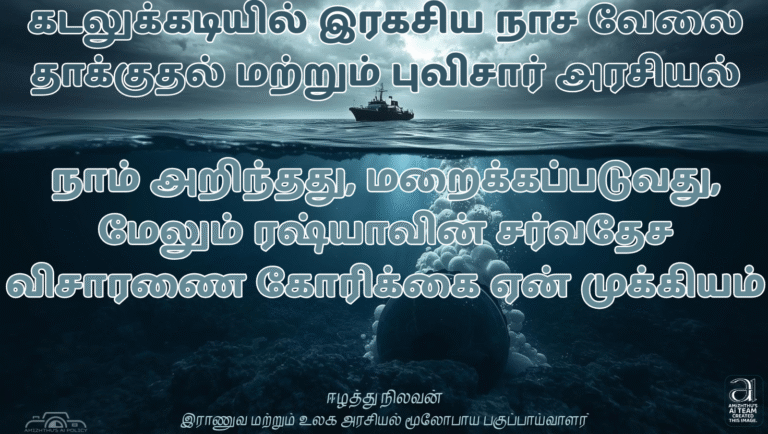The Faculty of Arts and the Department of English of the University of Jaffna have jointly organized a special lecture under the theme “Jaffna and Kerala: Caste and Society.” The announcement that Sharika Thiranagama, Associate Professor of Anthropology at Stanford University, USA, will deliver this lecture has sparked widespread discussions on social media.

The reason for this heightened attention lies in the memory of her mother, Dr. Rajani Thiranagama, who was assassinated on 21 September 1989 at the University of Jaffna campus. Her death, still shrouded in political controversy, has become intertwined with the narrative surrounding Sharika’s upcoming presence in Jaffna.
✦. Rajani Thiranagama – A Complex Life, A Complex Politics
Born on 23 February 1954, Rajani was the daughter of Rajasingam, Vice Principal of Jaffna College. An accomplished physician and academic, she served as a lecturer at the University of Jaffna.
Her elder sister, Nirmala Rajasingam, and brother-in-law, Dr. Muthiah Nithiyanandan, were in the early years closely connected with the Liberation Tigers of Tamil Eelam (LTTE). However, due to later dissatisfaction and conflicts, they eventually distanced themselves and became vocal critics of the movement. Along with them, another early LTTE member, Raghavan (Sinniah Rajasekumar), also defected from the movement and joined in anti-LTTE activism abroad, particularly in the UK.
Rajani’s own intellectual and political stance focused on social justice, women’s rights, and caste abolition. Yet she became widely known through her co-authorship of the book “The Broken Palmyra” (1988), which documented the suffering of civilians during the war and sharply criticized all armed groups, including the LTTE, the Indian Peace Keeping Force (IPKF), paramilitary groups, and the Sri Lankan state.
Although the book exposed atrocities committed by multiple actors, her assassination was predominantly attributed to the LTTE, leaving behind a contested legacy where political blame and historical truth remain entangled.
✦. Family Background and Roots of Anti-Tiger Politics
The Nirmala–Nithiyanandan couple, once sympathetic to the Tigers, grew disillusioned when their expectations from the movement were unmet. They later allied with Rajasekumar (Raghavan), who too had broken away. Together, they settled abroad and became part of intellectual and activist circles that criticized the LTTE and, in the process, weakened Tamil nationalist politics.
Thus, the family’s history became closely tied to anti-LTTE narratives, shaping how the Tamil struggle was portrayed in international forums. Today, Sharika Thiranagama, as Rajani’s daughter, inherits this politically sensitive legacy. Her lectures and academic work raise questions among Tamil society about whether she will follow her mother’s political line or adopt a broader, more balanced approach.
✦. Tamil National Struggle and the Role of Critical Scholarship
Rajani Thiranagama’s scholarship and activism often placed greater emphasis on the violence of armed groups than on the state-sponsored atrocities carried out by the Sri Lankan military and government. Critics argue that this tilted the global narrative and deflected attention away from the genocidal policies of the Sri Lankan state.
Sharika Thiranagama now arrives in Jaffna as a respected academic with international recognition. Yet the Tamil people’s concern is that her academic voice should not, knowingly or unknowingly, undermine the Tamil national struggle in the name of critique.
✦. The Expectation
Sharika Thiranagama may hold affection for Sri Lanka as her homeland and may sincerely uphold democratic principles. Such values are not in question. But that affection and those ideals must never be allowed to undermine the national rights of the Eelam Tamils.
History has already taught us a difficult lesson: the voices of intellectuals and scholars, whether knowingly or unknowingly, have often been used to obscure the genocidal crimes of the Sri Lankan state and to fracture or weaken the Tamil national struggle. In many instances, criticism that focused disproportionately on armed Tamil movements ended up shifting global attention away from the structural violence and state oppression faced by the Tamil people.
Because of this, the expectation placed on Sharika Thiranagama is both clear and weighty. The Tamil people expect that her academic voice, her lectures, and her intellectual contributions remain rooted in historical truth, in justice, and in a fair and balanced perspective.
Such a perspective must acknowledge and give dignity to the immense sacrifices of the Tamil people, and affirm their unyielding aspirations for national freedom. It must not reduce, dismiss, or delegitimize those struggles.
Therefore, her lecture at the University of Jaffna is not simply another academic exercise. It carries within it the true expectation of the Tamil people—that her words should not become another instrument of erasure, but rather a step toward truth and justice.

Written by
Eelaththu Nilavan
Tamil National Historian and Tamil National Political Analyst
23/08/2025
The views expressed in this article are the author’s own and do not necessarily reflect Amizhthu’s editorial stance.




